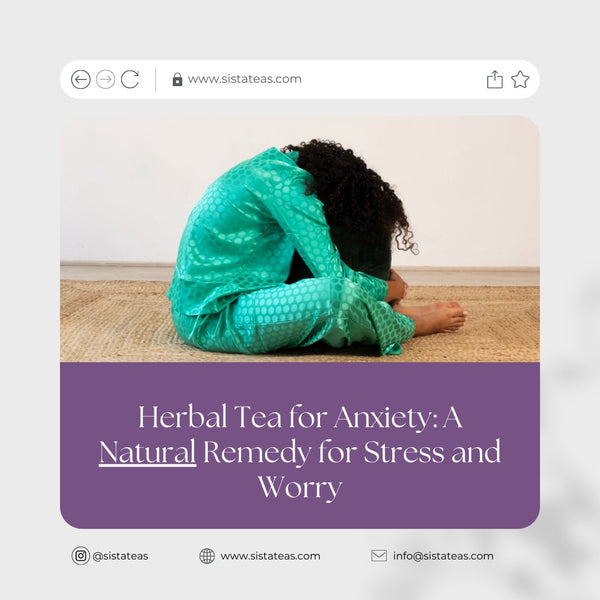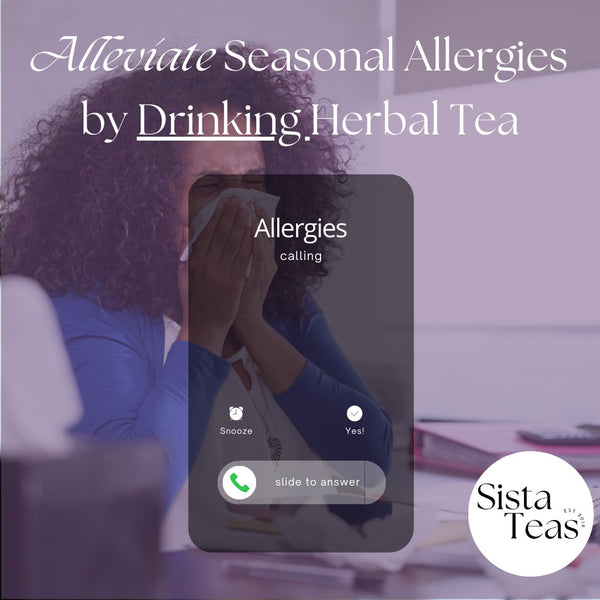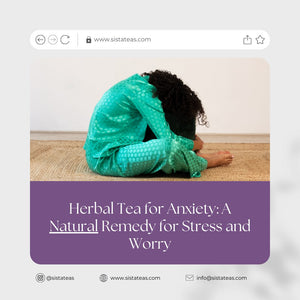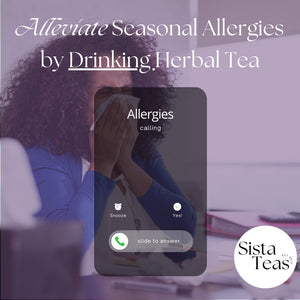Alleviate Seasonal Allergies by Drinking Herbal Tea

Herbal tea blends have been used for centuries to naturally alleviate allergy symptoms. Unlike traditional tea blends, herbal teas are made from a combination of botanicals such as flowers, leaves, and roots. In this blog, we will discuss the benefits of herbal tea blends for allergies.
Natural antihistamines
Herbal teas contain natural antihistamines, which can help reduce allergy symptoms. Antihistamines are compounds that block the effects of histamine, which is released by the body in response to allergens. When histamine is released, it causes inflammation and irritation in the nasal passages, leading to symptoms such as sneezing, runny nose, and itchy eyes. Drinking herbal tea blends can help reduce the body's production of histamine, thus alleviating allergy symptoms.
Anti-inflammatory properties
Many herbal teas contain anti-inflammatory properties, which can help reduce the inflammation and irritation associated with allergies. Some popular anti-inflammatory herbs used in tea blends include turmeric, ginger, and licorice root. These herbs can help reduce the production of pro-inflammatory cytokines, which can lead to allergy symptoms.
Soothing properties
Many herbal teas also have soothing properties, which can help alleviate the discomfort associated with allergies. Chamomile tea, for example, is known for its calming properties and can help reduce anxiety and stress associated with allergies. Eucalyptus tea can help alleviate sinus congestion and headaches associated with allergies. (Check out our Remedy Tea which have chamomile and Eucalyptus)
Rich in antioxidants
Herbal teas are also rich in antioxidants, which can help protect the body from the harmful effects of free radicals. Free radicals are unstable molecules that can damage cells and contribute to inflammation. Antioxidants neutralize free radicals and help reduce inflammation, which can be particularly beneficial for people with allergies.
Variety of flavors
Herbal tea blends come in a variety of flavors, making it easy to find a tea that is both delicious and beneficial for allergies. Some popular flavors for allergy relief include chamomile, eucalyptus, and nettle, which all have natural anti-inflammatory properties and can help alleviate allergy symptoms.
Allergies can be frustrating and debilitating, making it difficult to enjoy daily activities. Check out these teas that may help alleviate allergy symptoms.
-
Green Tea: Green tea is an excellent choice for people with allergies due to its anti-inflammatory and antioxidant properties. It contains compounds called catechins, which have been shown to reduce inflammation in the body. Green tea also contains theanine, which has a calming effect and can help reduce stress levels. Stress can exacerbate allergy symptoms, so reducing stress levels can help alleviate symptoms.
-
Peppermint Tea: Peppermint tea is a natural decongestant, making it an ideal choice for people with allergies. It contains menthol, which can help clear the sinuses and reduce congestion. Peppermint tea is also soothing and can help alleviate headaches associated with allergies.
-
Chamomile Tea: Chamomile tea is a popular choice for people with allergies due to its calming and anti-inflammatory properties. It contains compounds called flavonoids, which have been shown to reduce inflammation in the body. Chamomile tea can also help reduce anxiety and stress, which can exacerbate allergy symptoms.
-
Rooibos Tea: Rooibos tea is an herbal tea that has anti-inflammatory and antioxidant properties. It contains compounds called polyphenols, which can help reduce inflammation in the body. Rooibos tea is also caffeine-free, making it an ideal choice for people who are sensitive to caffeine.
In conclusion, herbal tea blends can be a natural and effective remedy for allergies. They contain natural antihistamines, have anti-inflammatory and soothing properties, are rich in antioxidants, and come in a variety of delicious flavors. If you suffer from allergies, incorporating herbal tea blends into your daily routine may be a helpful addition to your allergy relief toolkit.







